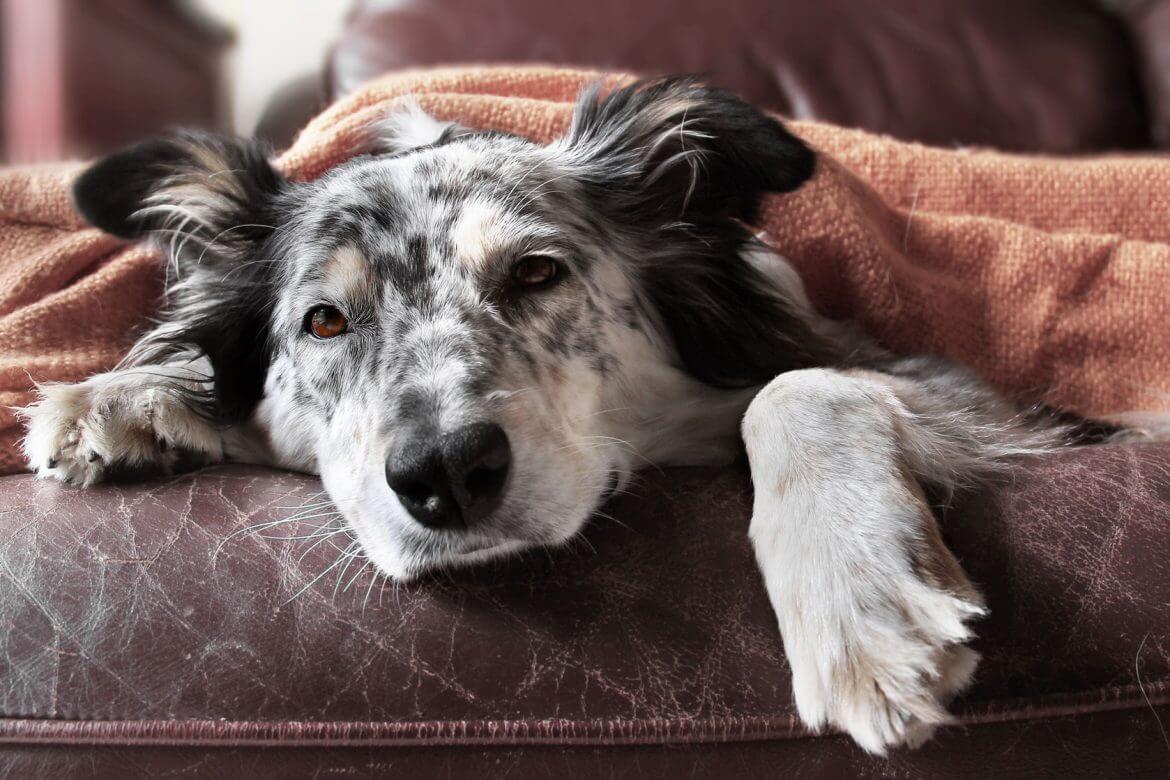Doggy Blues – Depression in dogs
PIA Australia
March 21, 2022
Depression in dogs is a common occurrence in some pet loving homes. From gloomy pups to despondent dogs, Nadia Crighton takes a look at what could be causing the doggy blues in your home.
There are many reasons our dogs can feel unhappy. From experiencing a loss, to their favourite friend moving out of home, some dogs will be more inclined to feel a little sad compared to others. So why do dogs get sad and what can you do to help?
Puppy Blues
In most cases your puppy will arrive happy, full of joy and excitement for their new home. But what if they don’t? Firstly, don’t panic, many pups arrive with a sense of loss and even a little sadness. The reasons for this could be:
- They’ve just left their litter mates and mum.
- They are not familiar with their surroundings.
- They are simply overwhelmed by the whole experience.
Some pups will be very quiet, while others may not show an interest in you or the home. They may just want to sleep, or head off to their bed or ‘safe’ area. Some pups may also refuse to eat and play, plus they may avoid or even hide from you. You will immediately know the symptoms. After all, it will be clear that your beautiful, new bundle of fluff is not very happy. It’s important not to feel dejected, this is only a temporary state and with a little love, patience and understanding, your puppy will be jumping with joy and chewing your shoes in no time at all.
What to do if your puppy is depressed?
It’s always a good idea to get a full vet check-up to ensure that there is nothing bad going on. There are now pheromone collars available for puppies that can help with depression and sadness. Plus plug in devices that can also assist during this time. So your vet is your first point of call. Once it is clear that your pup has a case of the blues, you can start to slowly encourage your puppy to ease into their new environment. This can include:
- Try hand-feeding your pup and get an appetite stimulant product. These normally come in cans and can be added to your pup’s existing food.
- Create a ‘safe zone’, so your pup can retreat when they need some space.
- Give lots of compassion and cuddles.
- Create a lovely warm bed in a quiet area and snuggle with them.
- Encourage your pup to play with a squeaky toy or moving rope.
- Pop off to a puppy-preschool. Playing with other pups will certainly give your pup a positive lift.
- Time – most importantly give them time. Your puppy will become happier every day, but this will take time.
Signs of Depression in Dogs?
Grown dogs may also suddenly start to show symptoms of depression. Dogs may also show other unusual behaviour, alongside the sadness which can include licking and chewing their feet and legs. There are a few reasons why dogs can become depressed:
- Death of a companion
- A child leaving home
- Moving house
- Sudden change
- Pain, such as arthritis
For many older dogs a bout of depression can be suddenly brought on by the death of their four-legged companion or the death of an owner. This can also be true if a family member leaves the home, such as a divorce situation or if a childhood best friend (A.K.A. your son) leaves for university. Also be aware of your emotions. Dogs are amazing at picking up on our emotions and changes. So for instance, if you are mourning the loss of a pet, your dog may also be picking up on your sadness.
What to do when your dog is depressed?
As with pups it is important to rule out any possible medical reasons behind your dog’s depression. Your dog could be suffering from depression because of pain or illness. Once your dog has a clean bill of health, the most important thing with older dogs is to keep up with your routine and rules. On a personal note, when one of my beloved dogs passed away suddenly, we showered affection on our precious pup. This meant allowing him to do things he was never allowed to do when his companion was alive, like sitting on the couch. This actually caused a huge amount of anxiety for our dog. So keeping up with the rules of the house and routine is very important. It gives your dog security and comfort.
For more signs on depression visit the Factual Facts website

8 Comment